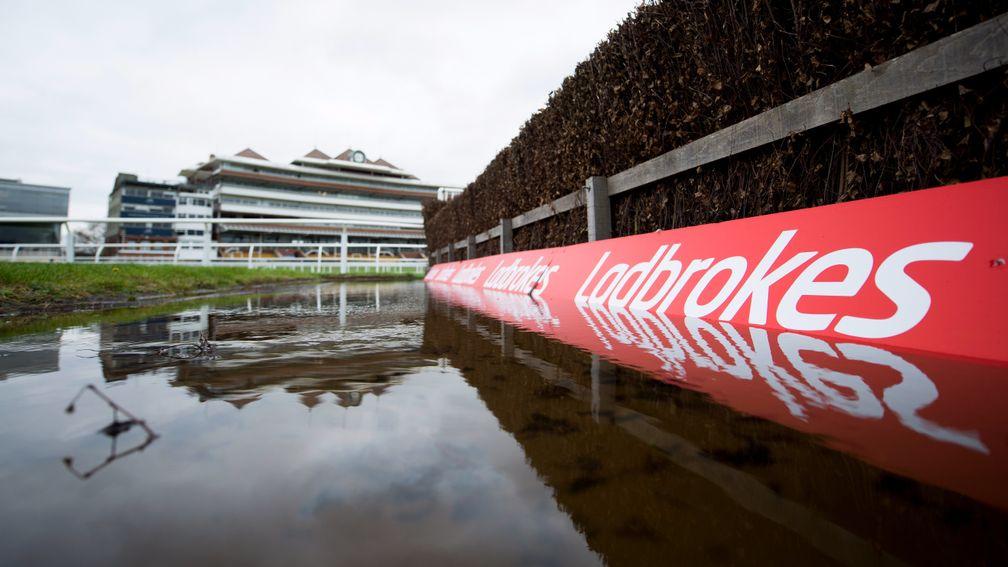Rule 4 controversy: bookmakers told to play fair or face intervention

Bookmakers may find their rules on non-runners forcibly changed by the Gambling Commission if they do not heed the lessons learned from the controversial Black Dave case.
The commission found that Ladbrokes had deliberately shortened the price of a known non-runner in order to maximise a rule 4 deduction – but it has not taken any more stringent action against the firm.
In January 2015 trainer David Evans placed a bet on his horse Black Dave in a 6f handicap at Wolverhampton with Ladbrokes, who were then told by Evans that stablemate Tango Sky would be withdrawn from the same race.
Ladbrokes then shortened Tango Sky to 3-1 (from 7-2), leading to a rule 4 deduction taking 25p from every £1, rather than 20p, on all winning bets in the race before Tango Sky was officially pulled out.
Having completed their inquiries into the events, the commission said on Wednesday: "We have previously stated we would be concerned if there was evidence that bookmakers had deliberately shortened the odds of known or likely non-runners in order to maximise rule 4 deductions for their own commercial gain to the disadvantage of consumers.
"We commented that such actions would be contrary to the statutory obligation to ensure gambling is fair."
The commission added: "Based on the evidence available, we concluded, and Ladbrokes accept, that a Ladbrokes trader deliberately shortened the price on Tango Sky in order to maximise rule 4 deductions."

The regulator also found that Ladbrokes had "failed to appropriately review all information available to them prior to initially providing the Gambling Commission with what were proven to be inaccurate explanations as to the reasons for the price shortening on Tango Sky".
The commission told operators they must take note of what had happened in the case and the actions Ladbrokes had taken to remedy their shortcomings, and reminded them that the industry's long-term viability was built on customer trust.
It added: "We will continue to monitor the situation. If we become aware that our expectations are not being met, we will consider exercising our formal regulatory powers on both the bookmaker and wider industry.
"This could include, for example, seeking a licence condition that mandates a specific approach to rule 4 that would mitigate the evident risk; namely, applying rule 4 based on the price of the withdrawn horse at time of bet placement or the price of the withdrawn horse at its official withdrawal time as recorded by the BHA."
The commission said they had not imposed a financial penalty because there had been no breach of licence conditions.
A spokesman said: "We have taken what we conclude is proportionate and appropriate action, having considered all the circumstances involved.
"The incident happened over three years ago – and pre-dated our previous public statements around the fair application of rule 4.
"The conduct does not amount to a breach of the licence conditions and codes of practice."
Ladbrokes Coral – their merger took place after the events being investigated – said they had co-operated fully with the commission and accepted the findings.
Speaking on behalf of the company, Simon Clare added that the episode came to light only because Ladbrokes brought the issue to the BHA's attention.
He said: "The Ladbrokes Coral trading policy is very clear, that we will never knowingly shorten the price of a suspected non-runner to benefit from an improved rule 4 deduction.
“Furthermore, the Ladbrokes Coral trading policy also states that if the trading team received information similar to this in the future, the markets affected should be suspended immediately and no price changes made, with the market re-opening only once it was clear whether the selection in question was going to participate or not.
"All the members of the Ladbrokes trading team have had this policy re-briefed to them in the light of the Gambling Commission investigation."
In the BHA hearing last year Evans was fined £3,000 for conduct prejudicial to the integrity, proper conduct and/or good reputation of horseracing, and £140 for not immediately notifying the Racing Calendar office of a non-runner.
The BHA endorsed the commission's findings and said it was important the sport is seen to be run with integrity across all aspects.
A spokesperson added: "The BHA works closely with the Gambling Commission as the regulatory body for bookmakers and with the betting industry to protect the integrity of British racing."
What is Rule 4?
Rule 4 is part of the Tattersalls Committee rules of betting on horseracing and compensates a bookmaker following the withdrawal of a horse in a race.
In a hypothetical example, if a bet is placed on a 5-1 shot in a three-runner race but a 7-4 shot in the same event is subsequently withdrawn, the 5-1 is no longer a fair reflection of that horse's chances.
Rule 4 deducts a set value in pence out of every pound in winning bets, with the size of the deduction determined by the price – either early or show – of the non-runner.
The level of deductions ranges from 90p in the pound at 1-9 or shorter to 5p in the pound at odds of 10-1 to 14-1.
In the example above the deduction for a 7-4 non-runner would be 35p in the pound from winning bets.
If you are interested in this, you should read:
Evans relieved with 'lenient' fine after expecting ban in integrity case
Members can read the latest exclusive interviews, news analysis and comment available from 6pm daily on racingpost.com
Published on 4 July 2018inNews
Last updated 16:38, 4 July 2018
- The latest edition of the Racing Post is available to read online now - here's how you can access it
- How Smart View recorded a 76 per cent profit at the Cheltenham Festival
- Smart View is available on the Racing Post app - how to read the revolutionary new racecard
- Levy reform talks 'accelerating' as clock ticks down to April deadline for agreement
- Kieran Shoemark lands another plum Meydan ride for Gosden stable on Trawlerman in Saturday's Dubai Gold Cup
- The latest edition of the Racing Post is available to read online now - here's how you can access it
- How Smart View recorded a 76 per cent profit at the Cheltenham Festival
- Smart View is available on the Racing Post app - how to read the revolutionary new racecard
- Levy reform talks 'accelerating' as clock ticks down to April deadline for agreement
- Kieran Shoemark lands another plum Meydan ride for Gosden stable on Trawlerman in Saturday's Dubai Gold Cup